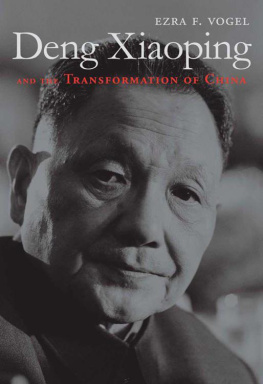The Secret Listener

Oxford University Press is a department of the University of Oxford. It furthers the Universitys objective of excellence in research, scholarship, and education by publishing worldwide. Oxford is a registered trade mark of Oxford University Press in the UK and certain other countries.
Published in the United States of America by Oxford University Press
198 Madison Avenue, New York, NY 10016, United States of America.
Yuan-tsung Chen 2022
All rights reserved. No part of this publication may be reproduced, stored in a retrieval system, or transmitted, in any form or by any means, without the prior permission in writing of Oxford University Press, or as expressly permitted by law, by license, or under terms agreed with the appropriate reproduction rights organization. Inquiries concerning reproduction outside the scope of the above should be sent to the Rights Department, Oxford University Press, at the address above.
You must not circulate this work in any other form and you must impose this same condition on any acquirer.
CIP data is on file at the Library of Congress
ISBN 9780197573341
eISBN 9780197573365
DOI: 10.1093/oso/9780197573341.001.0001
To my granddaughter Erita, and my grandson Jack Jr. with love
Contents
I would like to thank my friend Michael Denneny, an excellent editor, who smoothed the first draft of my manuscript. Thanks also go to Andrew Nathan, Class of 1919 Professor of Political Science at Columbia University, and Perry Link, Emeritus Professor of East Asian Studies at Princeton and Chancellorial Chair Professor for Teaching Across Disciplines at the University of California, Riverside, for their encouragement. Professor Nathan put me in touch with Amy and Peter Bernstein, literary agents par excellence. Peter and Amy introduced me to Richard Bernstein. Richard (no relation to Peter and Amy), a former foreign correspondent for the New York Times and Time magazine and the author of several notable books on China, was my ideal editor. Working with the three Bernsteins, writing this book became a wondrous journey during which I discovered the potential in my manuscript as well as in myself that I had not been entirely aware of before. I could not have written this memoir without them.
I also wish to thank the professional and resourceful team at Oxford University Press, in particular Dave McBride and Emily Mackenzie, who guided me through the submission process with understanding and patience, for bringing the book to life.
Meanwhile I want to thank Helen Nicholson, Production Editor, and her team at Newgen, for their professionalism and thoroughness.
And now at long last I have the opportunity to express openly, freely my gratitude to my comrades in tribulation who went through thick and thin with me.
Im fortunate to live in an apartment facing one of the prettiest bays in Hong Kong. I always love to be close to the sea. It inspires me; it prompts my thoughts and my recollections. The apartment was a good place to compose this memoir. As I gazed out my window, people who had touched my life in one way or another arose vividly in my minds eye and spoke to me in their own voices, as I have spoken in mine. But what we said we said a long time ago, going back more than eighty years, when I was six years old, and after all that time, I cant be sure that the dialogue Ive reproduced here represents exactly, word for word, what was spoken. But the words Ive put between quotation marks are what I remember, and I believe Ive captured in spirit, if not with verbatim accuracy, what was actually said.
I did not draw only on my memory. I read many books that helped me to recall what happened. To give one example, when I wrote about Zhou Enlai, I had three books at hand on my desk: (1) Zhou Enlai, written by Dick Wilson and published by Viking Penguin, New York, 1984; (2) The Biography of Zhou Enlai, written by the Department of Documentary Studies of the Central Committee of the Chinese Communist Party and published by its own press, Beijing, 1998; and (3) The Comprehensive Biography of Mao Zedong, written by Xin Ziling, who had worked in the Party Archive, and published by Li Wen Publishing House, Hong Kong, 1993.
To give another example, the birth and rise of the Chinese Communist Party had a great deal to do with the Soviet RussianOriented Policy designed by Eugene Chen, father of my late husband, Jack, for Sun Yat-sen, the leader of the Nationalist Party (i.e., Kuomintang). When I wrote about the relationship between the Chen family and the Chinese Communist Party, I drew on some information from two books, Inside the Cultural Revolution, written by Jack Chen with my help and published by Macmillan, New York, 1975; and Return to the Middle Kingdom, written by Yuan-tsung Chen and published by Union Square Press of Sterling Publishing Company, New York, 2008.
Prologue
Opening Shot
I planned to write my memoir in Hong Kong, where I moved from the Berkeley Hills in the San Francisco Bay Area in 2010, but it was only a few years later that new events made clear to me what my approach to my own experience needed to be. In 2015, several Hong Kong publishers, which had sold books unflattering to the reigning Communist Party, were seized by Chinas all-powerful Ministry of Public Security and brought across the border into Mainland China. These events opened old wounds, not only mine but also those of others who had fled to Hong Kong, then a British colony, before it was restored to China in 1997. Large numbers of Hong Kongers, many of them students, stepped forward and protested. The Party blamed the schools for not having taught them enough patriotism. The textbooks, particularly the ones about recent history, would be rewritten.
And so, for example, on January 11, 2018, the South China Morning Post reported that the Peoples Education Press in Beijing had published a new account of the Cultural Revolution (19661976), the most violent of Mao Zedongs violent purges, that would be read by all middle-school students. This new patriotic history rewrote what none other than Chinas paramount leader, Deng Xiaoping, had described as a ten-year-long cataclysm (Hao Jie) in which 1.7 million people perished, according to the official death toll. The dead had wives or husbands, children or parents, siblings or cousins, lovers or friends, so how many more lives were ruined? That same event in the new version became the ten years of arduous exploration and development achievement.
This Orwellian rewriting of a history that I lived myself propelled me to look deeper into my memory. Much that had lain dormant there began to stir, and I understood that what was taking place around me now in Hong Kong had its prototype in the 1950s, 60s, and 70s in China, exactly the periods I intended to cover in my memoir.
Perhaps I should try to explain this in more concrete terms. I was stunned by the new patriotic history for middle-school students, but paradoxically also inspired by it, because it told me how to remember events that I had experienced. Half a century ago I attended a giant rally in Beijings Tiananmen Square. A million middle-school students were there, in worshipful attendance on the Chinese demigod, Mao Zedong, who stood on the Gate of Heavenly Peace and rallied Chinas young people to his violent and disastrous cause. I went with a group from my neighborhood association and stood on the edge of the crowd. I saw the staged performance of a young acolyte, about twelve or thirteen years old, sliding a Red Guard armband on Maos sleeve, Maos acceptance of which signified his moral responsibility for the atrocities that these impressionable young people were soon to commit in his name. They beat, humiliated, and robbed whatever, wherever, and whomever they identified as feudal and bourgeois. They charged tens of thousands of people with sedition and treason, or just with insufficient admiration for Mao, and the courts and police went along with them, sending their victims to jail or labor camp. This horror was what Deng acknowledged in likening the Cultural Revolution to a cataclysm. Now it would all be hidden under the insipid and obscurantist phrase the decade of arduous exploration and development achievement that the mainlands education authorities were using to indoctrinate a new generation of Chinese young people. Whoever was behind the rewriting of Maos last purge shared the Maoist mentality, the same impulse to dictate what young people should know and what they should believe. They have at their disposal the giant megaphones of their propaganda apparatus, which is perhaps the largest and wealthiest state machinery in history for swaying public opinion, and I, just a retiree in the twilight of her years, living quietly and obscurely in a tiny apartment in Hong Kong, felt a familiar sense of outrage and powerlessness.

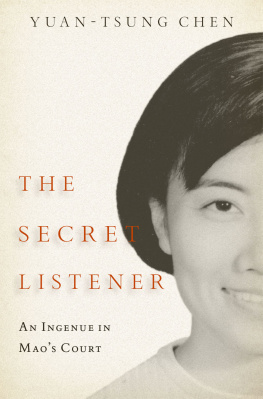

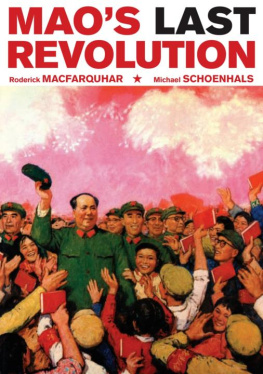

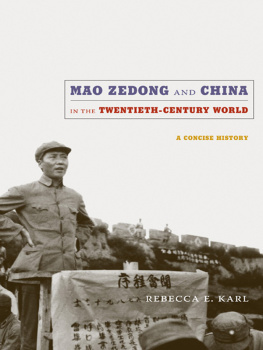

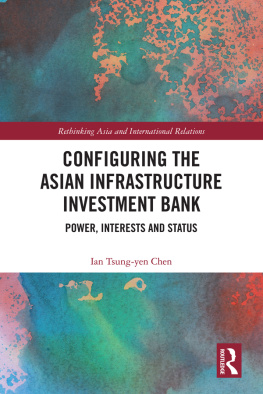
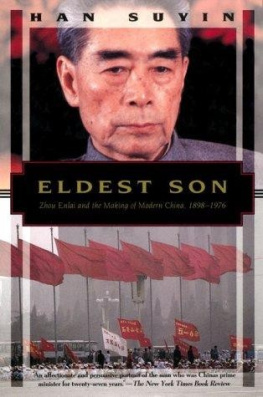
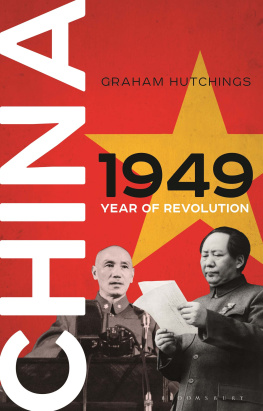
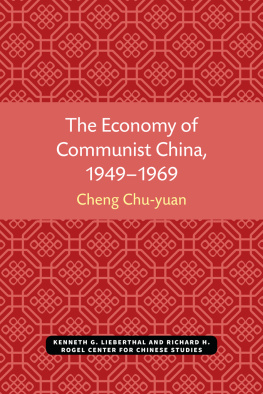
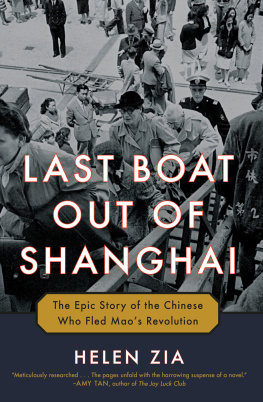
![Flower - China: [the essential guide to customs & culture]](/uploads/posts/book/200771/thumbs/flower-china-the-essential-guide-to-customs.jpg)
